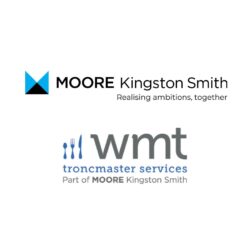The UK hospitality sector has faced a challenging year, shaped by rising costs, labour shortages and evolving consumer behaviour.
Moore Kingston Smith’s latest report, Hospitality in 2025 – a sector under the cloche?, provides a comprehensive analysis of these pressures and the opportunities emerging for operators.
Cost pressures and operational strain
The report highlights how increased employment costs, higher energy and food prices, and reduced business rates relief have squeezed margins. Recruitment difficulties have led to curtailed trading hours and greater reliance on technology. Meanwhile, the cost-of-living crisis continues to dampen discretionary spending, forcing businesses to balance price increases with customer retention.
Labour and immigration challenges
Workforce shortages remain a critical issue. Changes to the skilled worker visa regime, including higher salary thresholds and stricter skill requirements, have narrowed the scope for international recruitment. Moore Kingston Smith advises that businesses focus on retention strategies such as flexible rotas, wellbeing initiatives and career development pathways to reduce churn and maintain service quality.
M&A and investment trends
Despite economic uncertainty, M&A activity remains strong, with deal volumes back at pre-pandemic levels. Hotels and experience-led leisure businesses are attracting investor interest, supported by resilient occupancy rates and the long-term trend toward experiential spending. Private equity firms are particularly active, seeking opportunities to drive value through digitalisation, sustainability and operational efficiency.
Technology and AI: a competitive edge
Digital transformation is a recurring theme in the report. From AI-assisted scheduling to real-time cost tracking, technology is helping operators improve efficiency and protect margins. While AI is not a silver bullet, it can automate repetitive tasks, forecast demand and highlight anomalies, freeing leaders to focus on strategy and guest experience.
Regulatory and accounting changes
The Employment (Allocation of Tips) Act has reshaped tipping practices, introducing new compliance requirements and transparency obligations. Looking ahead, changes to FRS 102 will alter lease accounting, boosting reported EBITDA without improving cash flow, a shift that could impact debt covenants and refinancing negotiations.
Opportunities amid uncertainty
Despite headwinds, the report identifies clear opportunities. Consumer appetite for authentic, experience-led hospitality remains strong, and sustainability continues to offer reputational and operational benefits. Businesses that combine financial discipline with innovation, employee engagement and a clear ESG strategy are best placed to succeed.








